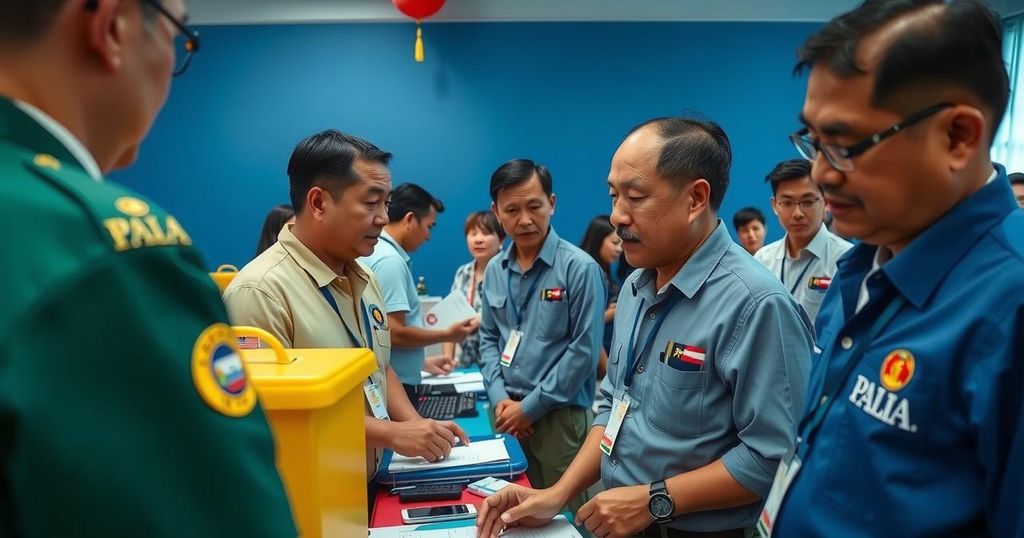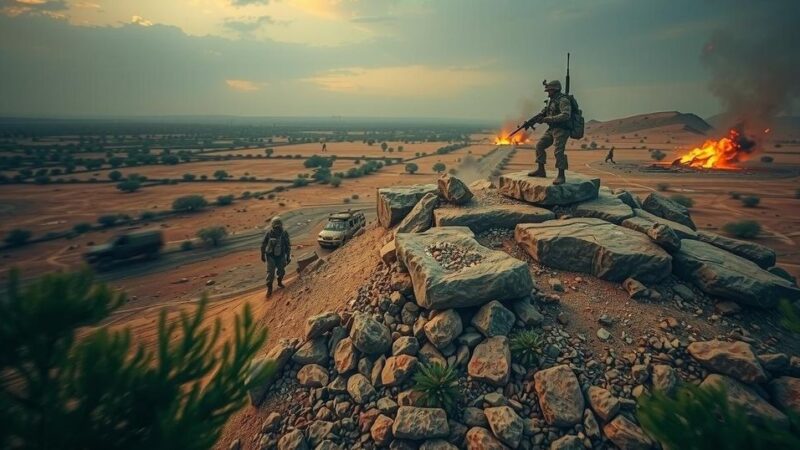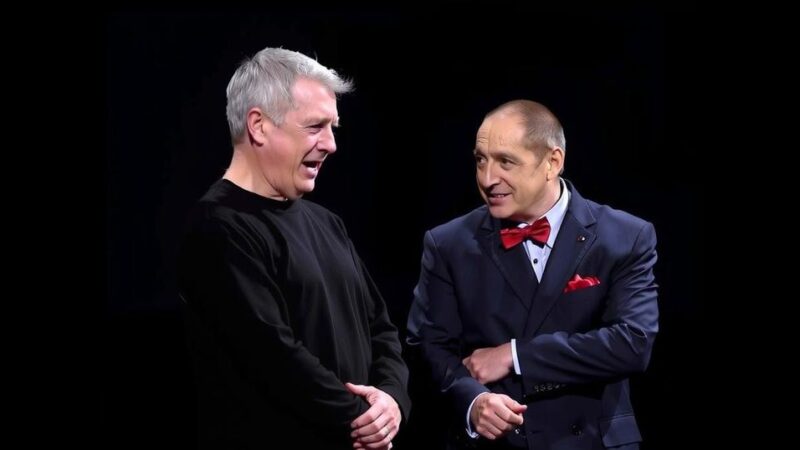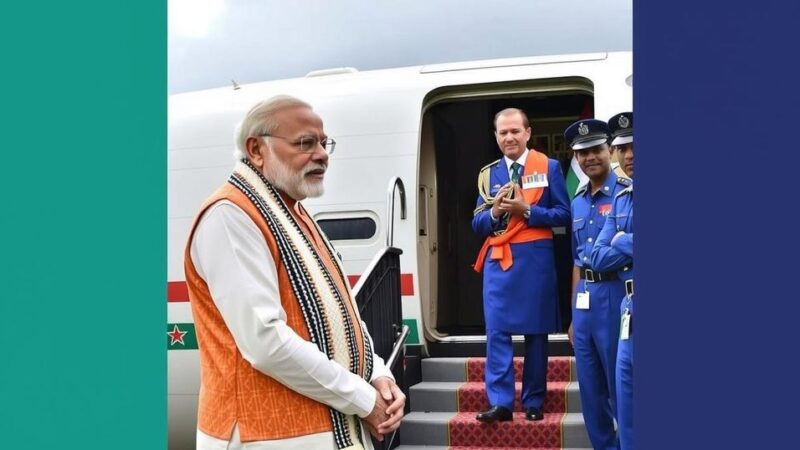As Palau heads to the polls on November 5, the elections symbolize the growing geopolitical tussle between the US and China. President Surangel Whipps Jr. faces former president Tommy Esang Remengesau Jr. in a race that highlights economic concerns and differing visions on foreign relations, particularly regarding military presence and environmental policy amidst rising tensions in the Pacific.
In the upcoming November 5 elections, Palau, a small Pacific nation, finds itself in a unique geopolitical context as it votes for its next president. With ties to Taiwan instead of China, Palau is under scrutiny from both the United States and China amid growing tensions in the region. The election will see President Surangel Whipps Jr. defend his position against former president Tommy Esang Remengesau Jr. Whipps, who is a proponent of US engagement, advocates for reforms to strengthen Palau’s economy and enhance security links with Washington. In contrast, Remengesau, recognized for his environmental initiatives, has indicated a potential openness to collaborations with China, particularly in addressing climate change and economic development for the island nation. As the election approaches, the primary concerns of voters relate to economic hardship and the rising cost of living, linked to Palau’s heavy reliance on imported goods, predominantly from the United States. This dependency has historically anchored Palau to the US under a Compact of Free Association, established post-independence in 1994, wherein the US provides substantial financial aid while maintaining control over defense matters. Palau’s strategic location has intensified its significance in the geopolitical rivalry between the US and China. Dr. Michael Green of the United States Studies Centre remarks, “These small islands that few people know about suddenly become the objects of major strategic competition.” Aiu Andres, a local truck driver, echoes the sentiments of many Palauans, stating, “Life today is a little bit harder… we cannot even really control the prices” due to the ongoing economic challenges. President Whipps underscores the necessity of US partnership in safeguarding Palau’s sovereignty against challenges posed by China, reaffirming, “As a small nation… I think it’s a benefit for Palau to have that special relationship with the United States.” On the other hand, Remengesau has raised ethical concerns regarding potential conflicts of interest related to Whipps’ business background, emphasizing fairness in government contract distribution. He advocates for an emphasis on environmental concerns over military engagements, asserting that, “Security for us is not about defence and militarisation. Security for us is about climate change and global warming.” As both candidates navigate their familial ties and differing visions for Palau’s future, the election serves as a crucial point for the nation’s political landscape and its diplomatic stances amidst the Sino-American rivalry. The results will not only impact domestic issues but may also further shape the regional power dynamics between the US and China, underscoring Palau’s position at this geopolitical crossroads.
Palau, a Pacific island nation, retains diplomatic relations with Taiwan despite China’s influence in the region. The country has historically aligned itself with the United States, receiving substantial financial aid and military support through a Compact of Free Association. This relationship has persisted since Palau’s independence from US administration in 1994. The current political landscape is influenced by economic concerns as Palau faces challenges related to the cost of living and dependence on imported goods. The upcoming elections have drawn the attention of both China and the US as they vie for influence across the Pacific, placing Palau in a significant position for international relations.
The November 5 elections in Palau are poised to be pivotal, reflecting both the nation’s internal challenges and its strategic role in international affairs between the US and China. As candidates position their platforms, the outcome may influence not only Palau’s domestic policies but also its diplomatic alignment in a region characterized by geopolitical competition. The election encapsulates the delicate balance Palau must strike in responding to external pressures while addressing critical issues such as economic stability and environmental protection.
Original Source: www.theguardian.com






